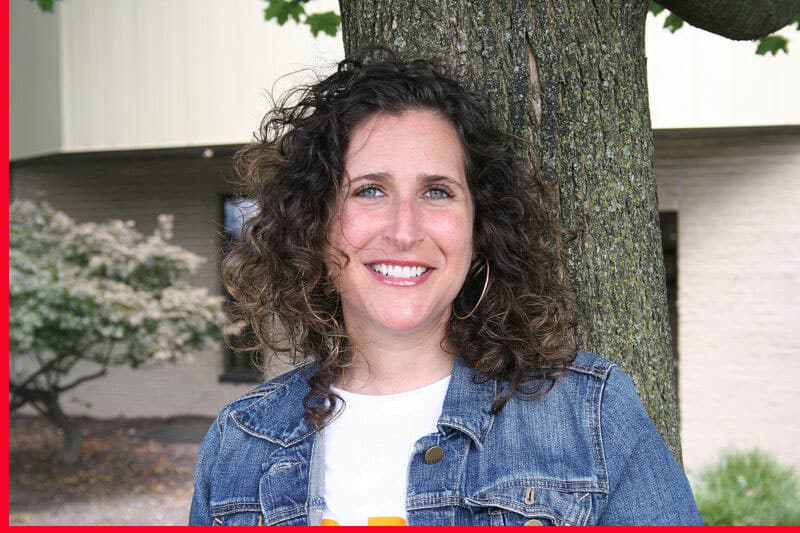Negotiating Succession and Changing Company Culture as a 4th Generation Female CEO

One of the most difficult processes I had to work through during my years as president of Premier Dental were the negotiations involving my eventually being named CEO and the revision of the related corporate governance documents. In the process, my father would relinquish his role as CEO and owner and move into a new status as chairman of the board.
The details were complicated and very specific to Premier and the Charlestein family. But the decisions to be made involved a number of questions that many family businesses need to wrestle with at some time—issues like how ownership shares will be divvied up among various members of the family, how those shares will be paid for or otherwise transferred from one owner to another, how important decisions about the business will be made, how long the transition from one generation to the next will take, and more.
As with so many of the important issues involved in running Premier, this required some challenging conversations with my father, which were complicated by our unique relationship and his approach to business. At times, when my father and I were at odds, he would vaguely suggest that he might want to reconsider things we’d already settled, like ownership shares, decision-making authority, and other matters. This made the whole process very stressful for me. My attorney described these negotiations as “like nothing I have ever seen.” When a business lawyer with decades of experience says this, you know it’s true—and that the process has not been an easy one. These months of negotiations embroiled me in a period of pain and frustration more intense than any other I’ve experienced.
In the end, our complex decisions about ownership and control of Premier got resolved amicably and, I believe, for the good of the business. The fact that my father is conflict-averse ended up working in our favor: as the negotiations dragged on, his desire to come to closure grew stronger and stronger, making it easier for us to finally resolve the issues that threatened to divide us. But if anyone ever tells you that dealing with a family business and its culture is easy, don’t believe them.
In 2013, I was named president of Premier. I might still be my father’s daughter, and my father might still want to apply a guiding hand behind the scenes—sometimes welcomed, sometimes more than I liked—but as far as the company’s employees and the outside world were concerned, I was now the face of Premier and the person in control of the organization. I had to prepare us to face the challenges of a changing world. And from what I could see, we weren’t there yet.
Internally, Premier was what many businesses are—a solid eight-to-four business. People worked standard company hours. As for working on the weekend—sometimes, but not really happening. Certainly nothing wrong, but also no burning drive. This absolutely wasn’t due to incompetence or lack of caring—it was simply the culture that had evolved.
In most ways, our culture was and is great—one driven by collaboration, happiness, and service. One where employees are valued, customers prized, and relationships cultivated. All super important and constantly inculcated. Among that amazingness, from my vantage point, there also seemed to be a lack of pressure, something that actually felt bizarre and unfamiliar to me, especially when faced with an increased pace of change and competitiveness.
My father stepped into his leadership role at Premier mainly from a strong sense of family duty and not necessarily from a personal passion for business—a quality that I find admirable. Let’s not forget, my father is quite capable. He went to Wharton, and Premier was successful under his leadership. With that success, he still maintained a consistently nonconfrontational
personal style. Over time, this style became the norm—devoid of urgency—a problem that’s not uncommon in family business. There wasn’t that push, that tension, required to adapt a business to an evolving world.
Once I became president of Premier, I set out to adjust these habits and practices. Shouldn’t everyone in business be Type A? Yes. At least part of the time. Altering the way we handled meetings was a relatively easy fix. I established a practice that, during every meeting, as topics were discussed, we assigned an owner and a time frame. Afterward, I circulated notes from the meeting reiterating everyone’s responsibilities and my expectations. Then the kicker: I sent out a calendar invite for the next meeting, which also marked the deadline for things to be completed.
Igniting the company culture was at the top of my agenda as president of Premier. But I knew that making it happen wouldn’t be easy, and it wouldn’t be fast. Shifting a company’s culture is a job that you have to be in for the long haul; it’s not something you can do overnight or once and for all.
Excerpted from How to Lead Your Family Business: Excelling Through Unexpected Crises, Choices, and Challenges copyright © 2023 by Julie Charlestein. Reprinted with permission from Matt Holt Books, an imprint of BenBella Books, Inc. All rights reserved.
Written by Julie Charlestein.
Have you read?
Largest Hotel Chains in the World, 2023.
Best Residence by Investment Programs for 2023.
International Financial Centres Ranking, 2023.
Best Citizenship by Investment (CBI) for 2023.
The World’s Most Valuable Unicorns, 2023.
Ready to join the CEOWORLD magazine Executive Council– Find out if you are eligible to apply.
Bring the best of the CEOWORLD magazine's global journalism to audiences in the United States and around the world. - Add CEOWORLD magazine to your Google News feed.
Follow CEOWORLD magazine headlines on: Google News, LinkedIn, Twitter, and Facebook.
Copyright 2025 The CEOWORLD magazine. All rights reserved. This material (and any extract from it) must not be copied, redistributed or placed on any website, without CEOWORLD magazine' prior written consent. For media queries, please contact: info@ceoworld.biz








